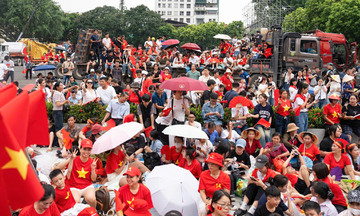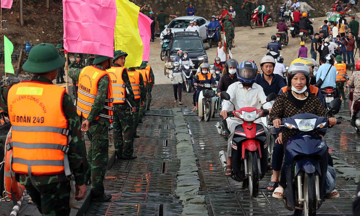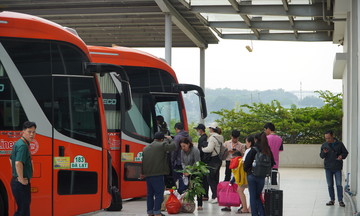A few days ago, Bac Ninh Province Vice Chairman Pham Van Thinh participated in a livestream to promote Luc Ngan lychees. As a result, over 54 tons of lychees were sold online. Thinh stated his goal was to help farmers sell their products effectively on e-commerce platforms, expanding the market for lychees both domestically and internationally.
This isn't an isolated incident. In early 2024, Nghiem Xuan Cuong, Vice Chairman of Quang Ninh Province and official in charge of agriculture and forestry, participated in a livestream at the OCOP Fair (One Commune, One Product program), directly assisting locals in selling key agricultural products. Cuong explained this action stemmed from the province's policy to diversify product marketing, his personal interest in OCOP agricultural products, and his recognition of e-commerce's potential.
"I always want to bring the region's key agricultural products to online businesses, maximizing the power of technology," Cuong said.
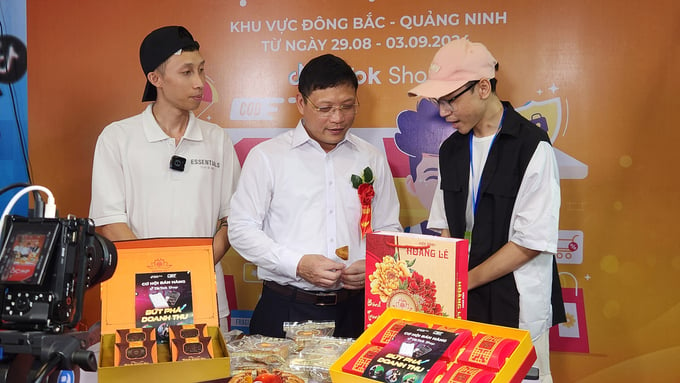 |
Quang Ninh Province Vice Chairman Nghiem Xuan Cuong (center) at the livestream introducing OCOP products. Photo: NVCC |
Quang Ninh Province Vice Chairman Nghiem Xuan Cuong (center) at the livestream introducing OCOP products. Photo: NVCC
National Assembly representative Ha Si Dong (former Acting Chairman of Quang Tri Province People's Committee) views the trend of officials using livestreams to promote products as a positive sign, reflecting innovation and a closer relationship between the government and its citizens.
According to Dong, when leaders personally introduce and promote products via livestream, the impact extends beyond simply selling agricultural goods. It builds trust in quality, guarantees the region's reputation, and helps people feel supported by the government. The effect is not just economic but also psychosocial, fostering local pride, increasing agricultural value, and strengthening producers' confidence.
"In an increasingly competitive market, leaders personally vouching for products with their reputation and official responsibilities greatly attracts consumers. This is a modern and effective form of public administration," Ha Si Dong said.
Recalling his time as a leader in Quang Tri Province, Dong shared that he always considered supporting local farmers and their key products central to rural economic growth. He joined farmers in trade promotion activities in Hanoi, Ho Chi Minh City, and some international markets, introducing specialties tied to local conditions like Khe Sanh coffee, Hai Lang K4 oranges, and Vang tea.
He emphasized that for people to believe in the new rural development program, the government must demonstrate tangible actions, creating sustainable livelihoods that go beyond criteria and reports. These agricultural products "will create livable rural areas," where people have both stable incomes and pride in their local values.
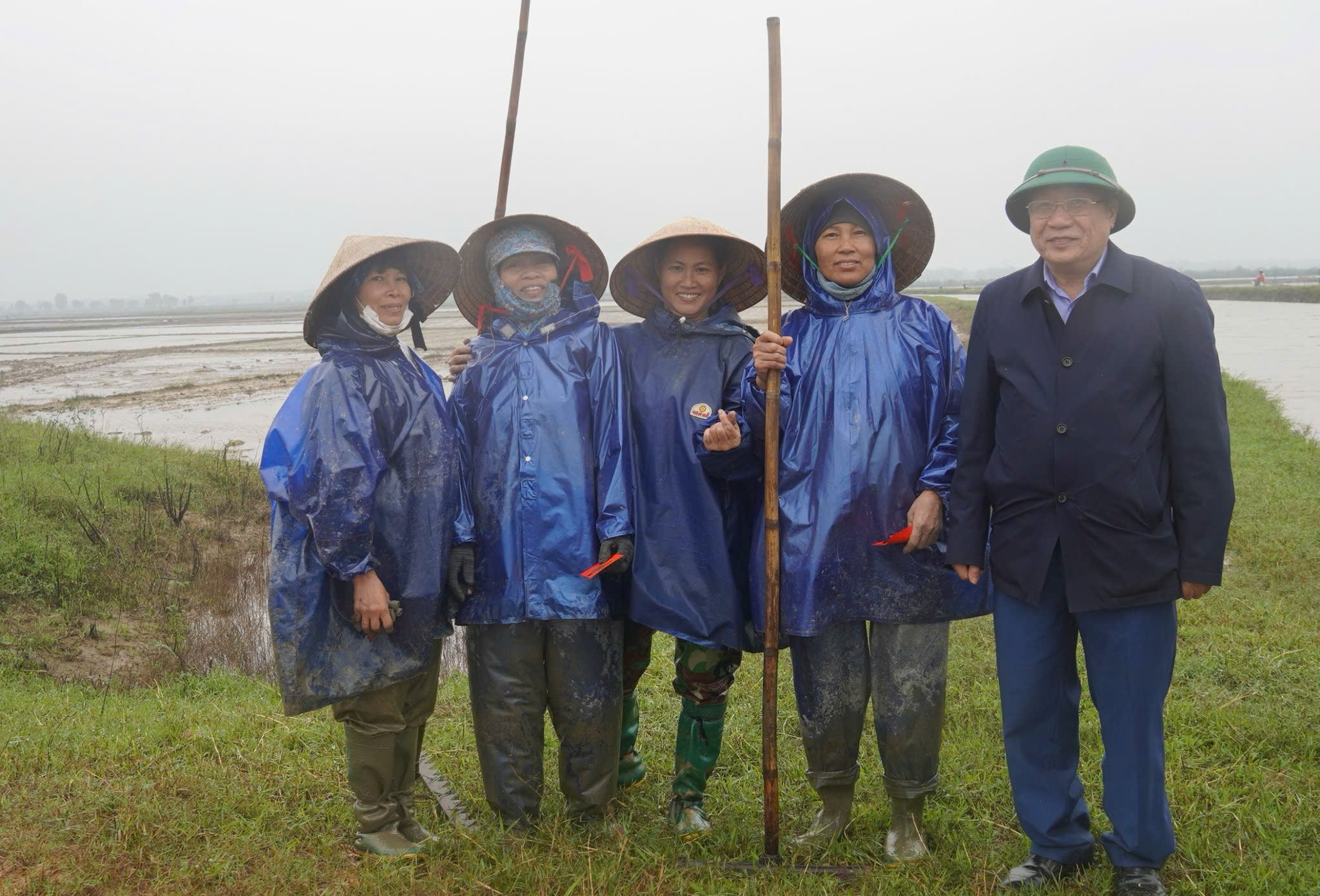 |
Ha Si Dong visits and wishes farmers a happy new year while observing agricultural development in the region. Photo: Hoang Phong |
Ha Si Dong visits and wishes farmers a happy new year while observing agricultural development in the region. Photo: Hoang Phong
"Walking in the people's shoes" and market-oriented thinking
National Assembly representative Nguyen Quang Huan (Chairman of HALCOM Vietnam Group) also supports officials directly participating in sales, seeing it as a positive sign for economic growth. He stressed that sustainable growth requires increased domestic revenue, and agricultural product consumption is an effective channel.
However, he also offered some cautions. When leaders promote products, honesty and integrity must be prioritized to avoid conflicts of interest. "If the same agricultural product is promoted for one company but not another, it can harm some businesses, even if the goal is good and aims for the common benefit," he analyzed.
He also noted that leaders' statements must be accurate, as even small errors or insufficient verification before announcements can lead to unintended consequences. To mitigate risks, he suggested leaders promote only common, characteristic products of the region and avoid advertising for specific businesses.
Huan believes that, like mayors in developed countries who regularly interact with businesses and citizens to understand the situation, local leaders also need to "walk in the people's shoes." Without understanding the industry and how people cultivate and care for their products, promotions lack persuasiveness. Sharing the difficulties and advantages of production gives weight to their words.
"When speaking from experience, the promotion is no longer empty words," Huan emphasized. He also supports young leaders in promoting e-commerce because, in the digital age, even good products struggle to reach consumers without proper promotion.
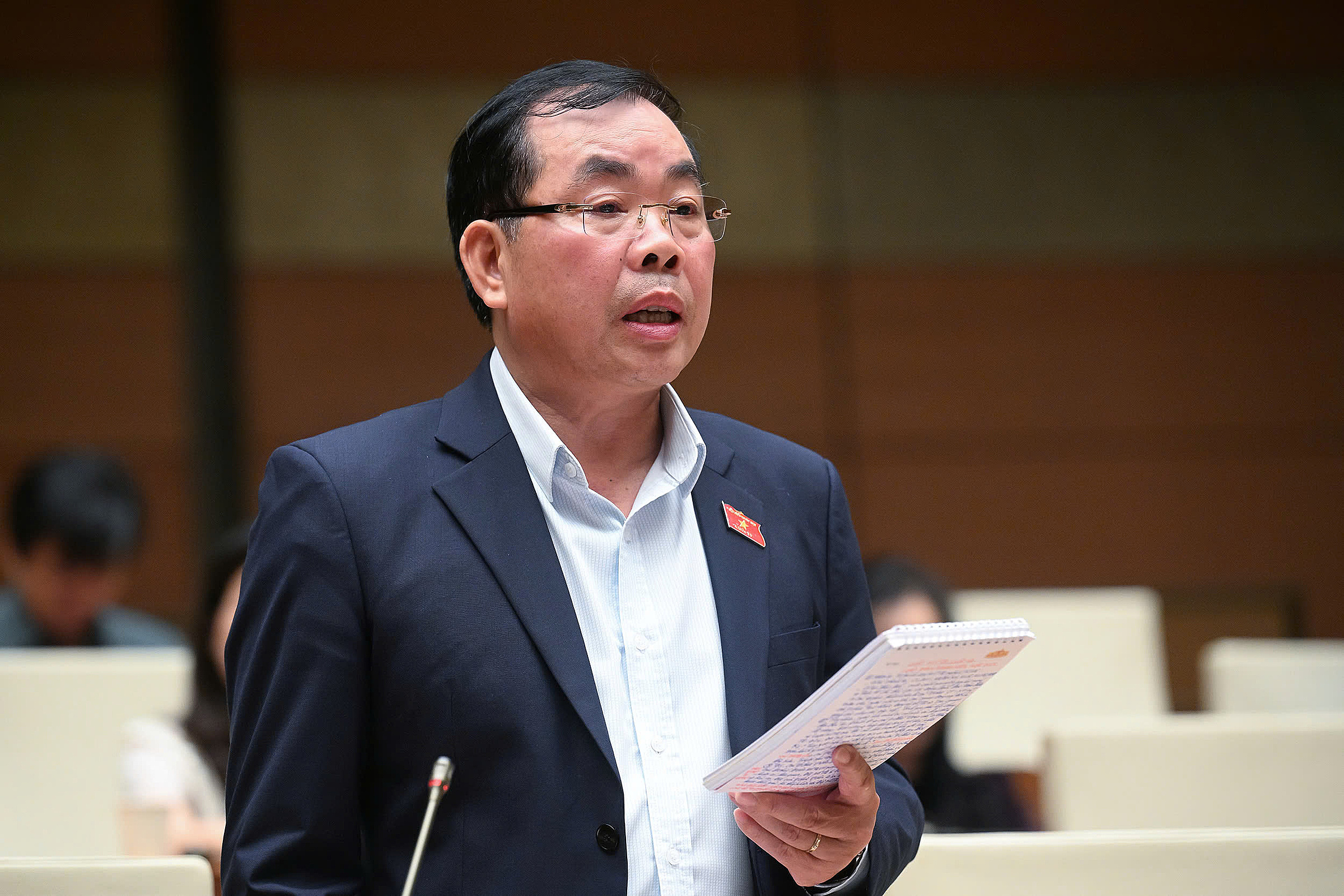 |
National Assembly representative Nguyen Quang Huan. Photo: National Assembly Portal |
National Assembly representative Nguyen Quang Huan. Photo: National Assembly Portal
Ha Si Dong stressed that leaders cannot understand reality if they only attend meetings, read reports, and listen to advice. "Stepping out of the meeting room" is not a formality but a necessary leadership principle. By visiting places where people work, leaders can see the problems that need solving and the potential resources.
During his time in Quang Tri, Dong required officials to regularly visit the grassroots level: going to local markets to understand purchasing power, visiting fields to understand farmers, and going to workshops to grasp issues related to capital and procedures. These trips not only improved decision-making but also built trust between the government and the people.
"I also always encourage young leaders to cultivate a close relationship with the people, match words with actions, take concrete steps, and not be afraid of challenges. When people see the government's support, they will actively innovate, invest boldly, and develop," Dong shared.
He hopes the younger generation of leaders will dare to innovate, think, act, and take responsibility. Political bravery is not enough; they need economic thinking, digital skills, communication skills, and an understanding of the people. He wants young officials to be comfortable visiting markets, fields, and workshops.
"We need a generation of leaders who think, act, and take responsibility together. Only then can we transform our localities into places that develop based on their identity and internal strength," Dong said.
Quang Ninh Vice Chairman Nghiem Xuan Cuong also believes that leaders leaving meeting rooms to be closer to the people during socio-economic growth is essential. "Sometimes we realize that there are times and situations where we are not truly close to the locality and the grassroots level. That is the motivation to change and try new approaches like participating in sales with the people," he said.
Son Ha





